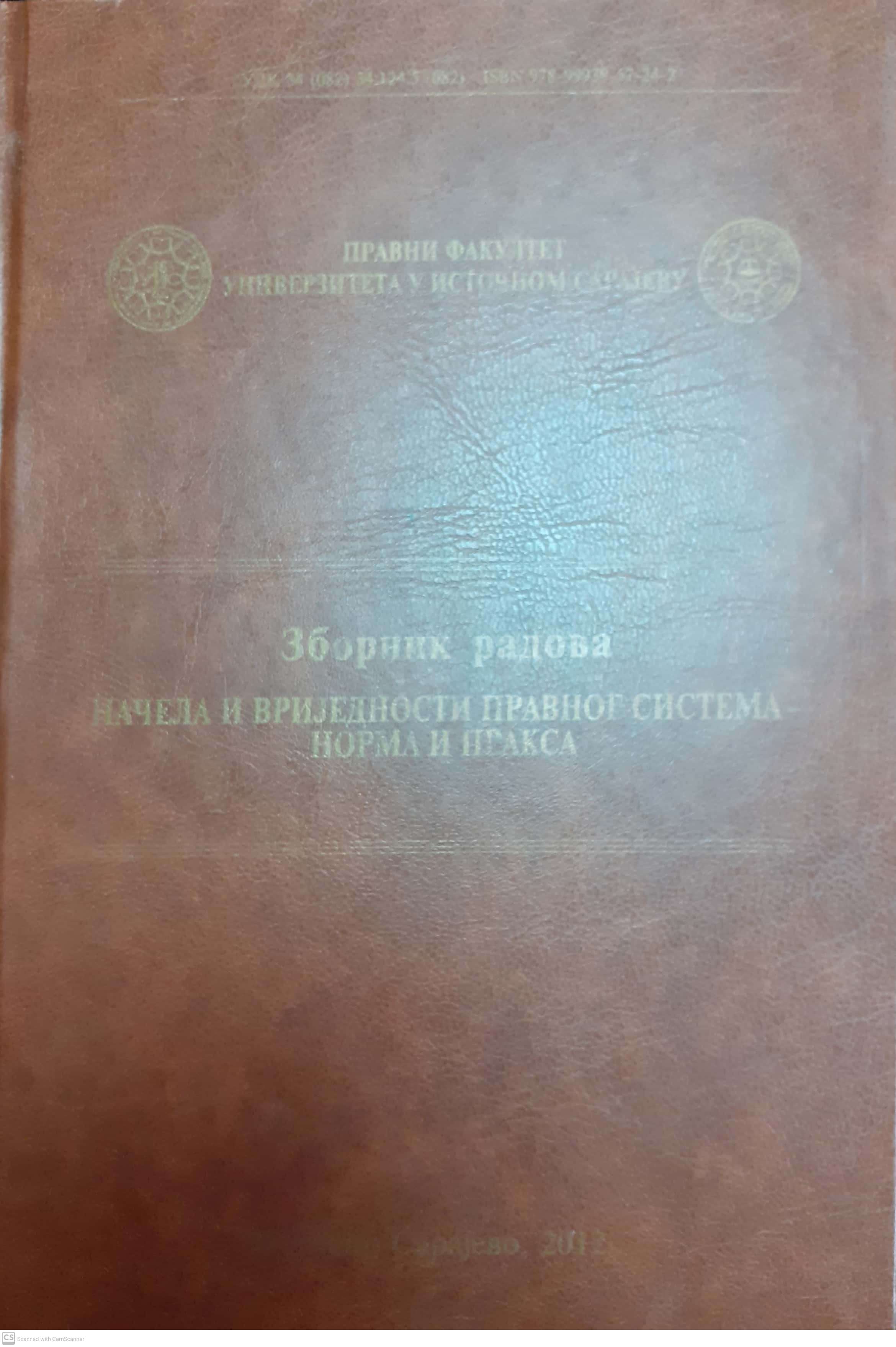Јавнобележничка делатност уз посебан осврт на законодавна решења у Републици Србији
Public Notaries' Work With Special Reference to Legal Solutions in Republic of Serbia
Author(s): Dušica Palačković
Subject(s): Law, Constitution, Jurisprudence
Published by: Правни факултет Универзитета у Источном Сарајеву
Keywords: Public notary;Public notaries' work;Assigned tasks;Dejudicalization;
Summary/Abstract: The subject of the author’s attention in this work is the comparative legal analysis of legislative solutions in the field of work of public notaries in a number of countries in our Region, with the special consideration being placed on the solutions given in the Republic of Serbia Law on Public Notaries. But, first, it was necessary to ensure the understanding of basic principles on which the work of public notaries is based, mostly the functional principles of notaries’ work of Latin type which has been accepted by these countries. In this work the author perceives the concept of public notaries’ activities in its traditional sense, as the performance of public duties under public confidence with relatively narrow scope. It includes the preparation and issuing of public certificates on legal affairs, statements and facts based on law, official certification of private legal documents and, so called, public notaries’ deposit. The author of this work analyzes the regulations in this field and available stands and theories on public notaries’ certification, that is their records, registry and certificates, as well as their verifications (the terms used in Serbian Law on public notaries), and on public notaries’ deposit. Special focus is placed on the differences between Serbian and Croatian regulations in this field and the specific position of public notaries in Croatia which, according to their law, act as the parties’ attorneys. In the part of this work which describes the duties that are assigned to public notaries in the analyzed countries, the author notices that their range and type vary across the national legislations and that there is a constant tendency of increasing the scope of these tasks. The author has shown a particular interest in analyzing the legislation of the Republic of Croatia, as well as some theories which could provide the answer to the question to which extent, that is limits, this process may go.
- Page Range: 53-75
- Page Count: 23
- Publication Year: 2011
- Language: Serbian
- Content File-PDF

